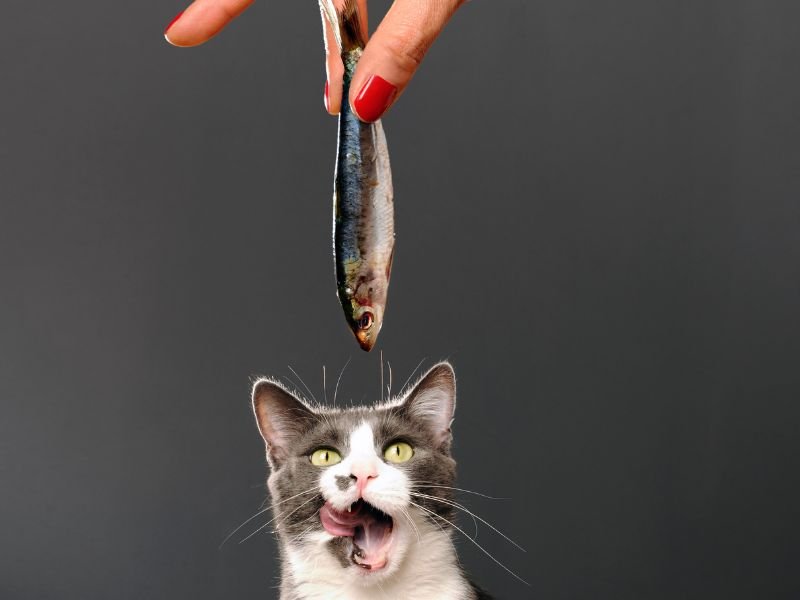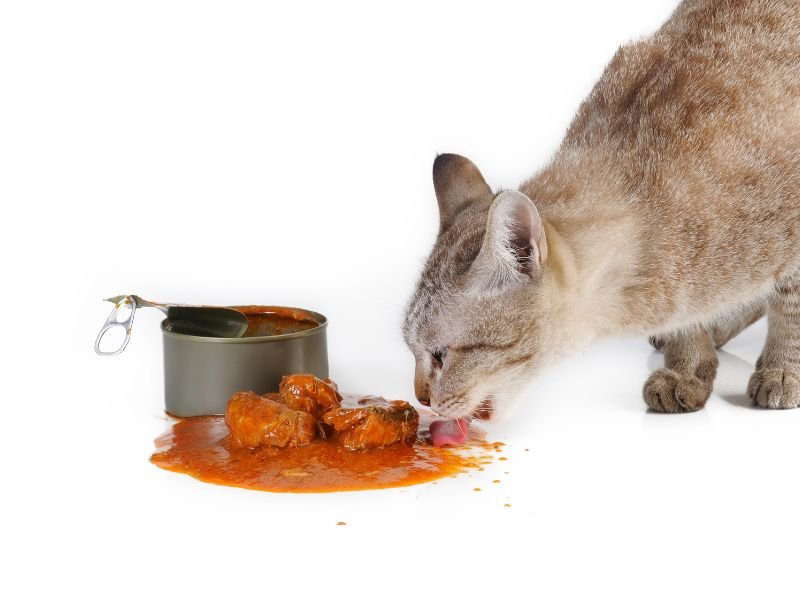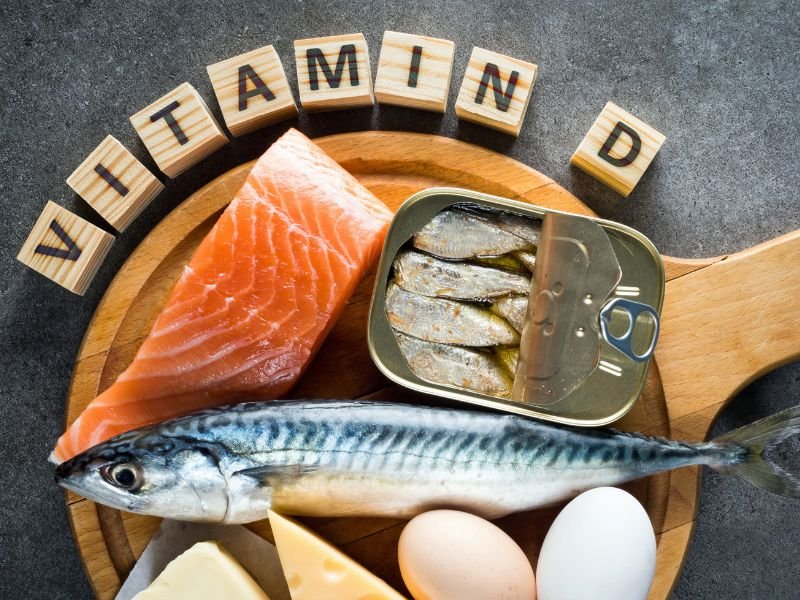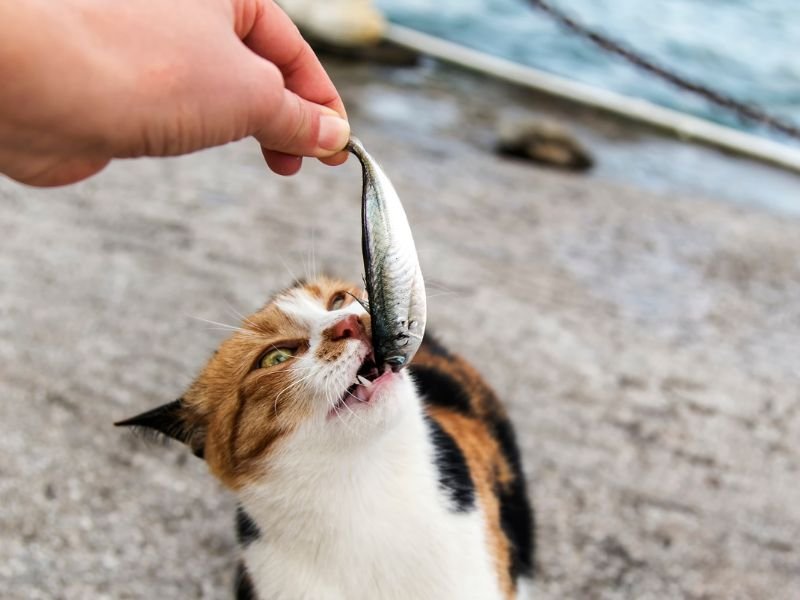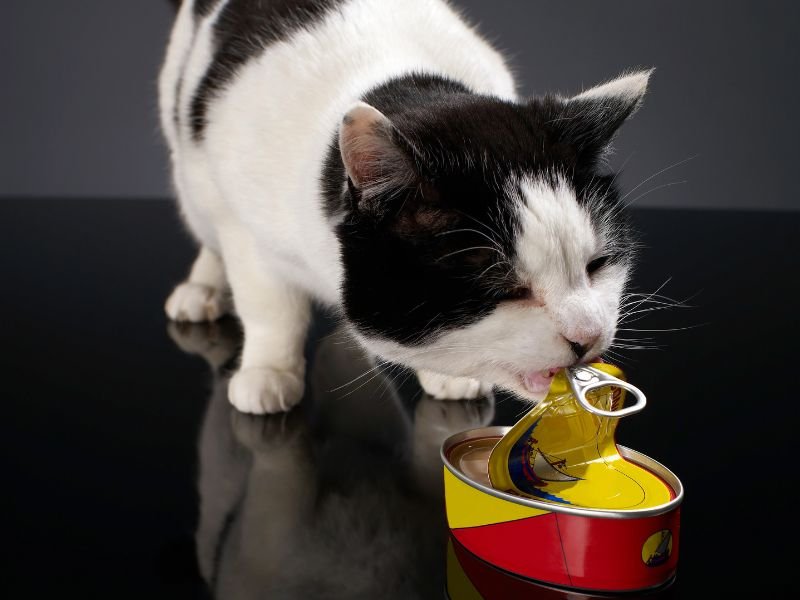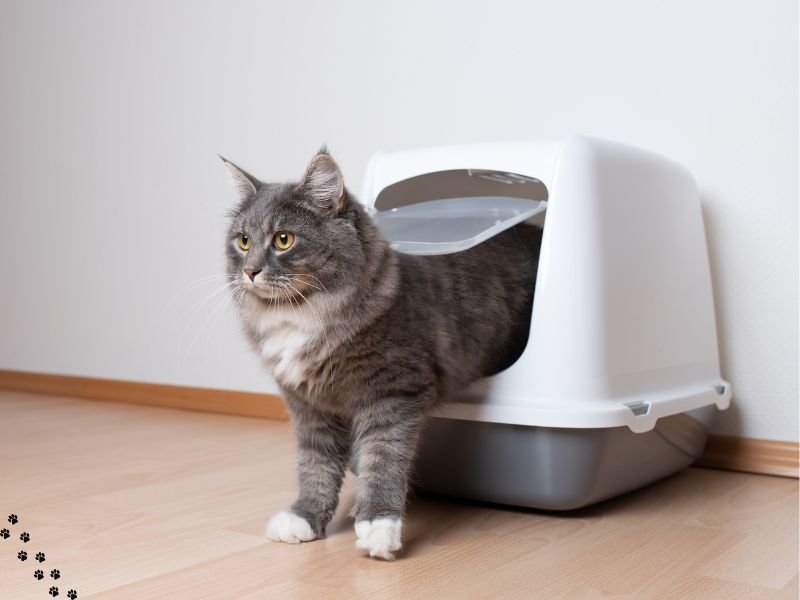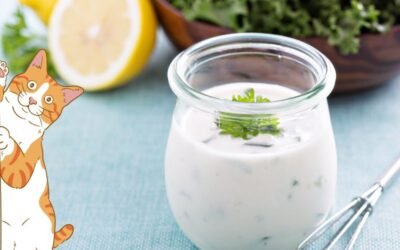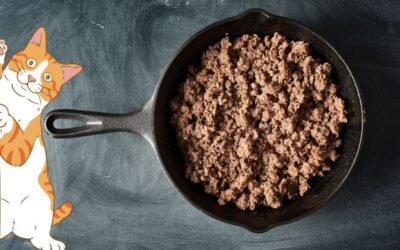Yes, sardines can be good for cats in moderation. Sardines are a type of fish that are rich in omega-3 fatty acids, which are beneficial for cats’ overall health.
Omega-3 fatty acids support brain function, reduce inflammation, and promote healthy skin and coat.
Table of Contents
- Understanding the Nutritional Benefits of Sardines for Cats
- The Role of Sardines in Feline Health and Well-being
- Are Sardines a Safe and Nutritious Addition to Your Cat’s Diet?
- Exploring the Omega-3 Fatty Acid Content in Sardines for Optimal Cat Health
- Potential Risks and Precautions When Feeding Sardines to Cats
- High Mercury Levels
- FAQs About Are Sardines Good for Cats
- Conclusion
Understanding the Nutritional Benefits of Sardines for Cats
Sardines are small, oily fish that are not only delicious for humans but can also provide numerous nutritional benefits for our feline friends. These tiny fish are packed with essential nutrients that can contribute to the overall health and well-being of cats.
One of the primary nutritional benefits of sardines is their high protein content. Cats are obligate carnivores, meaning they require a meat-based diet to thrive.
Sardines are an excellent source of high-quality animal protein, which is essential for muscle development, growth, and repair.
Adding sardines to a cat’s diet can help ensure they are getting the necessary protein they need for optimal health.
In addition to protein, sardines are rich in omega-3 fatty acids, which are crucial for maintaining a healthy coat and skin. These fatty acids also have anti-inflammatory properties that can benefit cats with conditions such as arthritis or inflammatory bowel disease.
Sardines are also a great source of several vitamins and minerals that play a vital role in a cat’s overall health. They contain vitamins such as vitamin D, which aids in calcium absorption and bone development, and vitamin B12, which is essential for nerve function and energy production.
Sardines also provide minerals like selenium and iodine, which support healthy thyroid function and metabolism in cats.
When choosing sardines for your cat, it is important to opt for those packed in water, rather than oil or other sauces, to avoid unnecessary additives and excess calories.
Additionally, ensure they are boneless and properly cooked or canned to eliminate the risk of bones causing choking hazards or injuries.
It is worth noting that while sardines can offer many nutritional benefits for cats, they should be fed in moderation and as part of a balanced diet.
Too much fish in a cat’s diet can lead to an imbalance in essential nutrients and even thiamine deficiency.
It is always best to consult with a veterinarian before making any significant changes to your cat’s diet, including the addition of sardines.
By understanding the nutritional benefits that sardines can provide, cat owners can make informed choices when it comes to incorporating these fish into their feline’s diet.
Remember, moderation is key, and consulting a veterinarian is always recommended for the best diet plan tailored to your cat’s individual needs.
The Role of Sardines in Feline Health and Well-being
Sardines play a crucial role in maintaining the health and well-being of our feline friends. These small, oily fish are packed with essential nutrients that can benefit cats in numerous ways.
From supporting their overall immune system to promoting a healthy coat and skin, sardines offer our furry companions a wide range of health benefits.
Rich Source of Omega-3 Fatty Acids
One of the key reasons why sardines are beneficial for cats is their high omega-3 fatty acid content.
These fatty acids, specifically EPA and DHA, are essential for maintaining proper brain function, promoting healthy vision, and supporting a strong cardiovascular system.
Additionally, omega-3 fatty acids have anti-inflammatory properties that can help alleviate joint pain and improve mobility in cats with arthritis.
High Protein Content
Sardines are an excellent source of high-quality protein, which is essential for cats’ overall health and muscle development.
Protein not only provides the building blocks for strong muscles but also supports healthy growth, repair, and maintenance of body tissues.
Incorporating sardines into your cat’s diet can help ensure they receive an adequate protein intake, especially if they are primarily fed a plant-based diet.
Essential Vitamins and Minerals
Alongside omega-3 fatty acids and protein, sardines also provide a rich array of vitamins and minerals that are crucial for feline health.
These include vitamin D, vitamin B12, calcium, phosphorus, and selenium.
Vitamin D aids in the absorption of calcium and plays a vital role in bone health, while vitamin B12 supports the proper functioning of the nervous system. Calcium and phosphorus are necessary for strong bones and teeth, and selenium acts as an antioxidant, protecting cells from damage.
Adding sardines to your cat’s diet can provide them with these essential nutrients, contributing to their overall well-being.
However, it is important to ensure that sardines are included as part of a balanced diet, alongside other appropriate cat foods.
By understanding the role that sardines can play in feline health and well-being, cat owners can make informed decisions when it comes to providing their pets with a nutritious and balanced diet.
Are Sardines a Safe and Nutritious Addition to Your Cat’s Diet?
Sardines are not only safe but also highly nutritious for cats. These small, oily fish are packed with essential nutrients that can greatly benefit your feline companion’s overall health and well-being.
Before incorporating sardines into your cat’s diet, it’s important to understand the potential benefits and precautions associated with their consumption.
Sardines are an excellent source of lean protein, which is essential for maintaining and building strong muscles in cats. Additionally, they are rich in omega-3 fatty acids, specifically EPA and DHA, which are known to have numerous health benefits for cats.
Omega-3 fatty acids support a healthy immune system, promote a lustrous coat, aid in brain development, and contribute to joint health.
These essential fatty acids are particularly important for cats as their bodies cannot produce them in sufficient quantities on their own.
When feeding sardines to your cat, it’s crucial to choose the right type. Opt for sardines packed in water or their natural oils, rather than those preserved in salt or added flavorings.
Avoid sardines that contain any added spices, garlic, or onion, as these ingredients can be harmful to cats.
It’s also important to serve sardines as an occasional treat or supplement to your cat’s regular diet, rather than as a primary source of nutrition.
Overfeeding sardines can lead to an imbalance in your cat’s diet and potentially cause digestive upset.
To properly incorporate sardines into your cat’s balanced diet, it’s recommended to serve them in small portions. Start by offering a small piece of sardine to assess your cat’s interest and tolerance.
If your cat enjoys sardines, you can gradually increase the serving size to one or two small sardines per week, depending on your cat’s size and dietary needs.
Remember to adjust the portion size accordingly if you’re also providing other sources of omega-3 fatty acids in your cat’s diet, such as fish oil supplements.
In summary, sardines can be a safe and nutritious addition to your cat’s diet when served in moderation.
Their high protein and omega-3 fatty acid content contribute to your cat’s overall health and well-being.
However, it’s vital to choose the right type of sardines and monitor the portion sizes to avoid any potential risks associated with overfeeding.
Consulting with your veterinarian can also provide valuable guidance on incorporating sardines into your cat’s diet and ensuring it aligns with their specific needs.
Exploring the Omega-3 Fatty Acid Content in Sardines for Optimal Cat Health
Omega-3 fatty acids are an essential component of a cat’s diet and play a crucial role in maintaining its overall health and well-being.
Sardines are a fantastic source of these beneficial fats, making them an excellent addition to your feline friend’s diet.
Let’s dive deeper into the omega-3 fatty acid content found in sardines and how it can benefit your cat.
Sardines are packed with two important types of omega-3 fatty acids: eicosapentaenoic acid (EPA) and docosahexaenoic acid (DHA).
These fatty acids are known for their anti-inflammatory properties, which can help reduce the risk of chronic diseases in cats such as heart disease and arthritis.
Additionally, EPA and DHA have been found to support brain health and improve cognitive function, making them particularly beneficial for senior cats.
Introducing sardines into your cat’s diet can also have positive effects on their skin and coat health.
The omega-3 fatty acids found in sardines help to nourish the skin, reduce flakiness, and promote a healthy, shiny coat. If your cat suffers from dry or itchy skin, adding sardines to their meals can help alleviate these issues, resulting in a happier and more comfortable kitty.
It’s important to note that while sardines are an excellent source of omega-3 fatty acids, they should be provided in moderation. Too much of a good thing can lead to an imbalance in the cat’s diet, potentially causing gastrointestinal upset or weight gain.
To ensure your cat reaps the benefits without any adverse effects, it is recommended to consult with your veterinarian to determine the appropriate amount of sardines based on your cat’s specific needs and diet.
Incorporating sardines into your cat’s diet can be as simple as mashing them up and mixing them with their regular food.
However, if your cat is a picky eater, you may need to experiment with different methods of serving sardines, such as mixing them with wet food or using them as a tasty treat.
By incorporating sardines into your cat’s balanced diet, you can provide the essential omega-3 fatty acids they need for optimal health.
Potential Risks and Precautions When Feeding Sardines to Cats
Feeding sardines to cats can be a nutritious addition to their diet, but it’s important to be aware of potential risks and take necessary precautions to ensure their well-being.
While sardines offer numerous health benefits, there are a few considerations pet owners should keep in mind.
High Mercury Levels
Sardines, like many other types of fish, may contain high levels of mercury. Although cats are generally less susceptible to mercury toxicity compared to other animals, it’s crucial to moderate your cat’s intake of sardines to avoid overexposure.
Mercury accumulation in the body can lead to neurological issues and other health problems, so it’s recommended to limit sardine consumption to a few times a week and opt for varieties with lower mercury content.
Bone Hazards
Sardines are typically canned whole, including their tiny soft bones. While these bones are safe for most cats to consume, there is a small risk of choking or intestinal damage if they are not chewed properly.
To minimize this risk, consider mashing or finely chopping the sardines and stirring them into your cat’s regular food.
Additionally, you can opt for boneless sardine varieties available in some pet stores to eliminate any potential bone-related hazards.
Allergies or Sensitivities
Just like humans, cats can develop allergies or sensitivities to certain foods, including fish.
Before introducing sardines into your cat’s diet, it’s advisable to conduct a sensitivity test by starting with a small portion and carefully monitoring any adverse reactions.
Watch out for signs such as vomiting, diarrhea, or excessive itching, and consult your veterinarian if you suspect your cat may have an allergic response to sardines.
By being aware of these potential risks and taking necessary precautions, you can safely incorporate sardines into your cat’s diet to provide them with essential nutrients.
Always consult with your veterinarian before making any major changes to your cat’s diet, especially if they have pre-existing health conditions or dietary restrictions.
Your veterinarian can advise you on appropriate portion sizes, frequency of feeding, and any specific considerations based on your cat’s individual needs.
FAQs About Are Sardines Good for Cats
Are sardines safe for cats?
Yes, sardines can be safe for cats when given in moderation. However, it’s important to remove any bones and ensure they are packed in water or oil without any added seasoning or spices.
Can cats eat sardines packed in oil?
Yes, cats can eat sardines packed in oil as long as it is natural oil and not artificial or seasoned. However, it’s important to drain off excess oil to prevent digestive issues and obesity.
How often can cats eat sardines?
It is recommended to feed sardines to cats as an occasional treat, not as a regular meal. Once or twice a week is generally sufficient to avoid any potential imbalances in their diet.
Are sardines a good source of nutrition for cats?
Sardines can be a good source of protein, omega-3 fatty acids, and essential vitamins for cats. However, they should only supplement a balanced and complete cat diet.
Can cats eat sardines for their skin and coat?
Yes, sardines can help improve a cat’s skin and coat health due to their omega-3 fatty acid content. These fatty acids can promote a healthy and shiny coat, as well as alleviate skin dryness or irritation.
Conclusion
Feeding sardines to cats can be beneficial as an occasional treat due to their nutritional value, particularly for their skin and coat.
However, it’s crucial to select sardines packed in water or natural oil, without any added seasoning or spices.
Moderation is key to ensuring a balanced diet and preventing any digestive issues or potential imbalances.
Consulting with a veterinarian is always recommended before introducing new foods to a cat’s diet.

